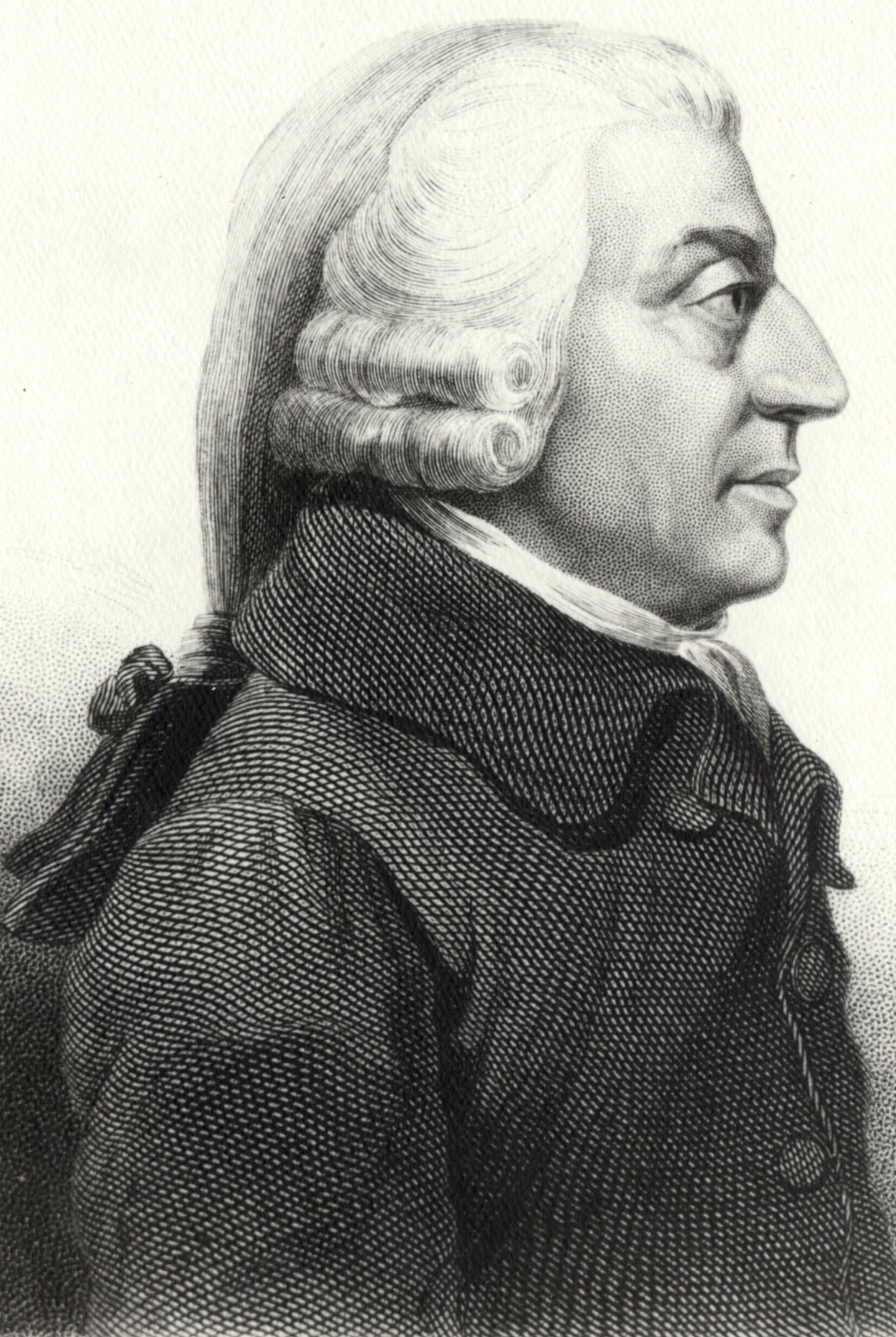Adam Smith nejznámější citáty
Adam Smith citáty a výroky
Originál: (en) It is not from the benevolence of the butcher, the brewer, or the baker that we expect our dinner, but from their regard to their own interest.
Zdroj: Muller, Jerry Z., str. 71
„Věda je účinná protilátka proti jedu nekritického myšlení a pověr.“
Zdroj: [Muller, Jerry Z., Adam Smith in his time and ours: designing the decent society, Princeton University Press, 1995, 978-0-69100-161-6, 161, anglicky]
Adam Smith: Citáty anglicky
Chap. I.
The Theory of Moral Sentiments (1759), Part III
Zdroj: (1776), Book III, Chapter IV, p. 456.
Zdroj: (1776), Book V, Chapter II, Part II, p. 894.
Zdroj: (1776), Book IV, Chapter II
“II. The tax which each individual is bound to pay ought to be certain, and not arbitrary.”
Zdroj: (1776), Book V, Chapter II, Part II, p. 892.
“All registers which, it is acknowledged, ought to be kept secret, ought certainly never to exist.”
Zdroj: (1776), Book V, Chapter II, Part II, Appendix to Articles I and II, p. 935.
Section II, Chap. I.
The Theory of Moral Sentiments (1759), Part VII
Zdroj: (1776), Book I, Chapter VIII, p. 87.
Section I, Chap. V.
The Theory of Moral Sentiments (1759), Part I
Section I, Chap. III.
The Theory of Moral Sentiments (1759), Part I
Zdroj: The Wealth of Nations (1776), Book IV, Chapter II
Chap. I.
The Theory of Moral Sentiments (1759), Part IV
Section II, Chap. I.
The Theory of Moral Sentiments (1759), Part VI
Zdroj: (1776), Book I, Chapter I
“the competition of the poor takes away from the reward of the rich.”
Zdroj: (1776), Book I, Chapter X, Part II, p. 154.
Zdroj: (1776), Book II, Chapter III, p. 381.
“All money is a matter of belief.”
https://www.amazon.com/All-money-matter-belief-quotes/dp/B01M0HLG6B
Attributed
Section II, Chap. II.
The Theory of Moral Sentiments (1759), Part II
“Corn is a necessary, silver is only a superfluity.”
Zdroj: (1776), Book I, Chapter XI, Part III, (First Period) p. 223.
Zdroj: (1776), Book V, Chapter III, Part V, p. 1032 (Last Page).
Chap. I.
The Theory of Moral Sentiments (1759), Part IV
Zdroj: (1776), Book I, Chapter V, p. 50.
Zdroj: (1776), Book I, Chapter XI, Part III, (Conclusion..) p. 282.
Chap. III.
The Theory of Moral Sentiments (1759), Part III
Zdroj: (1776), Book IV, Chapter III, Part II, p. 530.
Section II, Chap. I.
The Theory of Moral Sentiments (1759), Part II
Zdroj: (1776), Book IV, Chapter V, p. 563.
